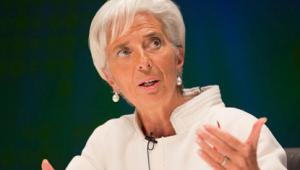By Nick Mann | 14 May 2012
Sub-Saharan Africa’s economic output will increase by 5.5% this year as new resource production in many countries and a recovery in Western Africa help to boost the region’s performance, the International Monetary Fund said today.
But this forecast was subject to ‘substantial’ downside risks, the IMF added. In its Regional economic outlook, the fund said the biggest threats would come from renewed financial stresses in the eurozone and the potential for geopolitical uncertainties to cause a surge in global oil prices.
The region recorded 5% growth last year despite drought in the Sahel, conflict in Ivory Coast and weakness in many of South Africa’s European trading partners and the IMF said this momentum was expected to be maintained in 2012.
Inflation is also expected to moderate, in particular, in countries in eastern Africa that have tightened monetary policy.
Antoinette Monsio Sayeh, director of the IMF's African department, said: ‘A weaker global economy would, of course, slow the pace of growth in sub-Saharan Africa. However, the resilience of the region’s economies over the course of the current global economic crisis provides confidence that solid growth can still be recorded under less favourable external conditions.’
The IMF stressed the variation in performance across the region, which it said should influence how countries respond to the current economic situation. In South Africa, the region’s largest economy, growth is expected to slow to below 3%, while the second largest economy, Nigeria, is forecast to maintain growth around 7%.
‘There are no “one-size-fits-all” policy recommendations,’ said Sayeh. ‘In countries where output growth is now strong and where budget deficits have widened significantly over the course of the crisis, governments should be taking the opportunity to rebuild fiscal positions and contain debt build-ups.
‘But fiscal consolidation would be premature in countries where growth is weak and links to Europe are strong, unless borrowing capacity is eroded. Countries in the process of reducing elevated inflation rates will need to maintain monetary policy on the tight side until there is clear evidence of progress.’













